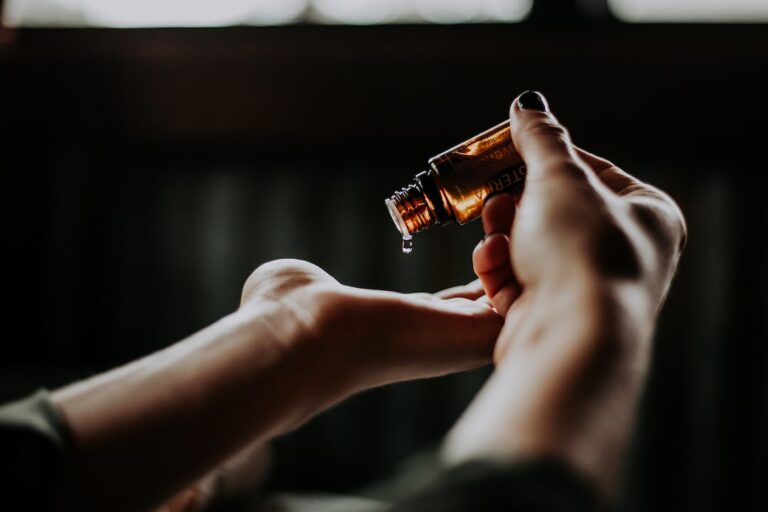Introduction
Definition of mental health withdrawal
Mental health withdrawal refers to the process of disengaging from social activities, relationships, and responsibilities due to mental health issues. It is a complex phenomenon that can manifest in various ways, such as isolating oneself from others, avoiding social situations, and withdrawing from personal and professional commitments. Mental health withdrawal can be a coping mechanism for individuals who are experiencing overwhelming stress, anxiety, depression, or other mental health conditions. It is important to note that mental health withdrawal is not a sign of weakness or laziness, but rather a legitimate response to protect one’s well-being. By taking time to prioritize self-care and seek appropriate support, individuals can gradually reintegrate into social and professional spheres, leading to improved mental health and overall well-being.
Causes of mental health withdrawal
Mental health withdrawal can be caused by various factors that impact an individual’s emotional well-being. One common cause is prolonged exposure to stressful situations, such as chronic work-related stress or traumatic events. Additionally, certain mental health conditions, such as anxiety or depression, can contribute to feelings of withdrawal. Other factors, like social isolation, lack of support systems, or substance abuse, can also play a role in triggering mental health withdrawal. It is important to recognize these causes and seek appropriate support and treatment to address and manage mental health withdrawal effectively.
Effects of mental health withdrawal
Mental health withdrawal can have significant effects on an individual’s well-being. It is important to understand these effects in order to provide appropriate support and care. One of the key effects of mental health withdrawal is the impact it can have on a person’s social relationships. When experiencing withdrawal, individuals may isolate themselves from friends and family, leading to feelings of loneliness and a lack of social support. Another effect of mental health withdrawal is the potential decline in physical health. Research has shown that prolonged withdrawal can lead to decreased immune function, making individuals more susceptible to illness. Therefore, it is crucial to address mental health withdrawal and provide the necessary resources and interventions to promote overall well-being.
Signs and Symptoms
Physical symptoms of mental health withdrawal
Mental health withdrawal can manifest in various physical symptoms that can be distressing. These symptoms may include fatigue, headaches, muscle tension, and changes in appetite and sleep patterns. It is important to note that these physical symptoms can vary from person to person and may also be influenced by other factors. However, experiencing these physical symptoms can be a sign that an individual is going through a period of mental health withdrawal. It is crucial to seek support and professional help to address these symptoms and work towards overall well-being.
Emotional symptoms of mental health withdrawal
Emotional symptoms of mental health withdrawal can vary greatly from person to person. However, some common emotional symptoms include feelings of sadness, anxiety, irritability, and a sense of detachment from others. These symptoms can be challenging to manage and may have a significant impact on daily functioning and overall well-being. It is important to seek support from a mental health professional who can provide guidance and help develop coping strategies. Additionally, exploring natural supplements for mercury detox may be beneficial in alleviating some of the emotional symptoms associated with mental health withdrawal. These supplements can help support the body’s natural detoxification processes and promote emotional well-being. It is important to consult with a healthcare professional before starting any new supplement regimen to ensure safety and effectiveness.
Behavioral symptoms of mental health withdrawal
Mental health withdrawal can manifest in various behavioral symptoms, which may indicate a person’s struggle with their mental well-being. These symptoms can include social isolation, loss of interest in previously enjoyed activities, changes in sleep patterns, and difficulty concentrating. It is important to note that each individual may experience different behavioral symptoms, and the severity can also vary. Seeking professional help and support from loved ones is crucial in addressing mental health withdrawal. Additionally, exploring alternative remedies such as cinnamon, which has been suggested to have potential benefits for mental health, may be worth considering as part of a holistic approach to well-being.
Treatment and Support

Professional help for mental health withdrawal
Mental health withdrawal can be a challenging and overwhelming experience, but seeking professional help is crucial for recovery. With the guidance and support of trained mental health professionals, individuals can navigate the complexities of their withdrawal journey. Professional help offers a range of interventions and therapies tailored to the specific needs of each individual. These may include counseling, psychotherapy, medication management, and holistic approaches such as natural medicine series. The natural medicine series provides alternative and complementary treatments that can support mental well-being and promote overall health. By incorporating natural remedies and practices into their treatment plan, individuals can enhance their healing process and find relief from withdrawal symptoms. It is important to consult with a qualified healthcare provider to determine the most suitable approach for managing mental health withdrawal and to ensure the integration of professional help with natural medicine series for optimal outcomes.
Self-care strategies for mental health withdrawal
Self-care strategies for mental health withdrawal involve taking steps to prioritize your well-being and support your mental and emotional health. It is important to remember that everyone’s journey is unique, so finding the strategies that work best for you is key. Here are some self-care strategies that can help during a mental health withdrawal:
1. Practice mindfulness and meditation: Taking time to quiet your mind and focus on the present moment can help reduce stress and promote relaxation.
2. Engage in physical activity: Exercise has been shown to have numerous benefits for mental health, including reducing symptoms of anxiety and depression.
3. Connect with others: Social support is crucial during times of withdrawal. Reach out to trusted friends and family members who can provide a listening ear and emotional support.
4. Prioritize self-care activities: Engage in activities that bring you joy and relaxation, such as reading, practicing hobbies, or taking baths.
5. Seek professional help: If you are struggling with mental health withdrawal, consider reaching out to a mental health professional who can provide guidance and support.
Remember, self-care is an ongoing process, and it may take time to find what works best for you. Be patient and kind to yourself as you navigate this journey.
Support systems for individuals experiencing mental health withdrawal
Support systems for individuals experiencing mental health withdrawal are crucial in helping them navigate this challenging time. One important aspect of support is providing information and resources on mercury detoxification tips. Mercury detoxification is the process of removing mercury from the body to promote overall health and well-being. It is essential for individuals experiencing mental health withdrawal to have access to reliable and evidence-based tips on how to safely and effectively detoxify their bodies from mercury. These tips can include dietary changes, lifestyle modifications, and the use of natural supplements. By implementing these tips, individuals can support their mental health recovery and enhance their overall quality of life. It is important to consult with healthcare professionals or experts in mercury detoxification to ensure the safety and effectiveness of the detoxification process.
Prevention

Recognizing early signs of mental health issues
Recognizing early signs of mental health issues is crucial for early intervention and effective treatment. By being aware of the signs, individuals can seek help and support before the condition worsens. Some common early signs of mental health issues include changes in mood, such as persistent sadness or irritability, difficulty concentrating, changes in sleep patterns, withdrawal from social activities, and loss of interest in previously enjoyed activities. It is important to note that everyone’s experience with mental health issues is unique, and not all signs may be present in every individual. If you or someone you know is experiencing any of these signs, it is recommended to reach out to a healthcare professional or mental health provider for further evaluation and assistance.
Building resilience and coping mechanisms
Building resilience and coping mechanisms is crucial for maintaining mental health and well-being. One effective way to enhance resilience is through the use of medicinal herbs. Medicinal herbs have been used for centuries to promote mental and emotional well-being. They have properties that can help reduce stress, anxiety, and depression, and improve overall cognitive function. Some commonly used medicinal herbs include chamomile, lavender, and St. John’s Wort. Chamomile has calming effects and can help alleviate anxiety and promote better sleep. Lavender has been shown to reduce stress and improve mood. St. John’s Wort is often used as a natural remedy for depression. Incorporating these medicinal herbs into your daily routine can provide a natural and holistic approach to building resilience and coping with mental health challenges.
Promoting mental well-being
Promoting mental well-being is essential for maintaining a healthy mind and overall quality of life. Taking care of our mental health is just as important as taking care of our physical health. It involves adopting positive habits and practices that contribute to a balanced and fulfilling life. Engaging in regular exercise, practicing mindfulness and relaxation techniques, maintaining healthy relationships, and seeking professional help when needed are all key components of promoting mental well-being. By prioritizing our mental well-being, we can enhance our resilience, cope with stress more effectively, and improve our overall emotional well-being.
Impact on Relationships

Effects of mental health withdrawal on personal relationships
Mental health withdrawal can have profound effects on personal relationships. It is a complex phenomenon that can strain the bonds between individuals. One of the key impacts is the difficulty in maintaining open communication and emotional connection. The withdrawal may lead to a decrease in social interactions, making it challenging to express one’s thoughts and feelings. This can result in misunderstandings and a sense of isolation. Another consequence is the potential loss of trust and intimacy. When a person withdraws from their loved ones, it can create distance and erode the foundation of trust that relationships are built upon. Additionally, the withdrawal can also affect the overall dynamics of the relationship, leading to a shift in roles and responsibilities. It is important to recognize the effects of mental health withdrawal on personal relationships and provide support and understanding to those going through this challenging experience.
Communication strategies for supporting someone experiencing mental health withdrawal
Communication strategies for supporting someone experiencing mental health withdrawal involve creating a safe and non-judgmental space. It is important to listen actively and empathetically, allowing the person to express their feelings without interruption. Avoid giving unsolicited advice or trying to fix their problems. Instead, validate their emotions and offer reassurance. Use open-ended questions to encourage them to share their thoughts and experiences. Respect their boundaries and give them space if they need it. Offer support and let them know that you are there for them. Remember, each person’s experience with mental health withdrawal is unique, so it is essential to be patient and understanding.
Maintaining healthy boundaries
Maintaining healthy boundaries is crucial for overall mental health and well-being. It involves setting limits and protecting oneself from situations or relationships that may be harmful or draining. By establishing clear boundaries, individuals can ensure that their needs are met and their emotional and physical health is prioritized. One important aspect of maintaining healthy boundaries is being aware of herb toxicity. Herb toxicity refers to the potential dangers and harmful effects of consuming certain herbs or herbal products. It is important to be knowledgeable about the potential risks and side effects of different herbs, as well as to consult with a healthcare professional before incorporating them into one’s routine. By being informed about herb toxicity, individuals can make informed decisions about their health and well-being.
FAQ (Frequently Asked Questions)

What is mental health withdrawal?
Mental health withdrawal refers to the process of consciously disengaging from activities, situations, or relationships that may have a negative impact on one’s mental well-being. It is a proactive step taken by individuals to prioritize their mental health and create a healthier and more balanced lifestyle. During mental health withdrawal, individuals may choose to limit their exposure to stressors, practice self-care, and seek support from trusted sources. One such trusted source is a mercury detox solution, which offers a comprehensive approach to removing toxins from the body and promoting overall well-being. By incorporating a trusted mercury detox solution into their mental health withdrawal journey, individuals can enhance their detoxification process and support their mental health recovery.
How long does mental health withdrawal last?
Mental health withdrawal can vary in duration depending on several factors. While there is no set timeframe, it is important to note that the process can take weeks, months, or even years. The length of mental health withdrawal is influenced by the severity of the condition, individual coping mechanisms, and the availability of support systems. It is crucial to seek professional help and utilize various treatment options, including therapy, medication, and self-care practices, to aid in the recovery process. Additionally, exploring herbal remedies for healing, such as chamomile tea or lavender essential oil, may provide complementary support for mental well-being.
Can mental health withdrawal be prevented?
Yes, mental health withdrawal can be prevented with early intervention and support. It is crucial to recognize the signs and symptoms of mental health withdrawal, such as social isolation, loss of interest in activities, and changes in sleep and appetite. By promoting open conversations about mental health and providing access to mental health resources, individuals can receive the help they need before withdrawal becomes severe. Additionally, creating a supportive and inclusive environment where individuals feel comfortable seeking help can also contribute to preventing mental health withdrawal. It is important to remember that everyone’s experience with mental health is unique, and early intervention can make a significant difference in improving overall well-being.


































